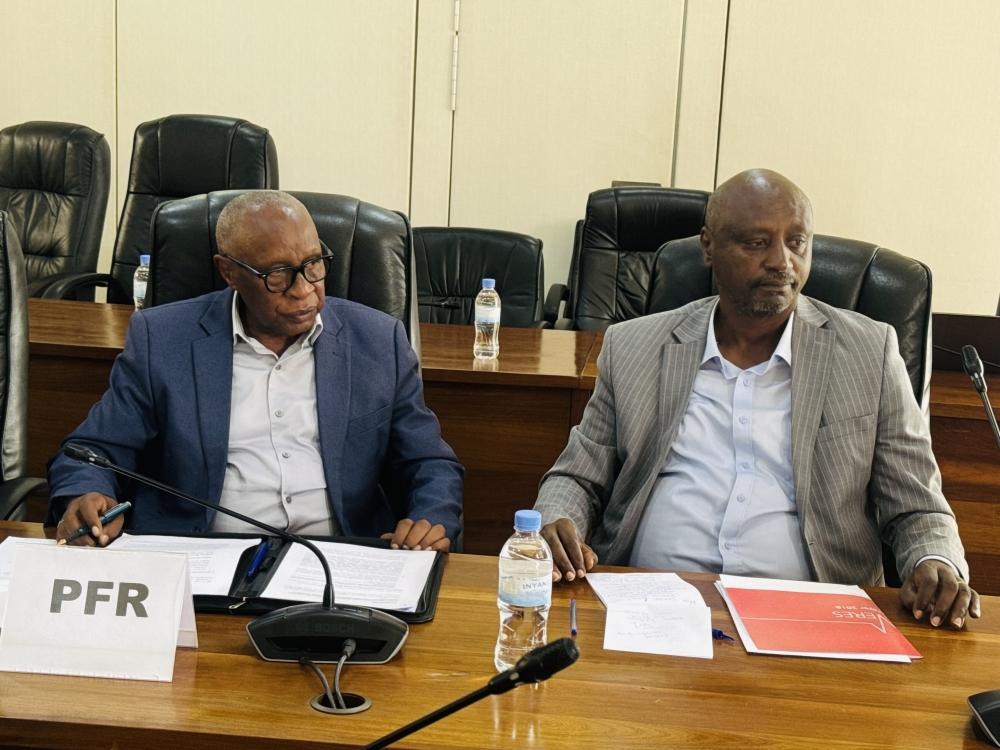Africa-Press – Rwanda. There is a need for a holistic approach to support the successful reintegration of convicts of the 1994 Genocide against the Tutsi into society, after they have finished serving their sentences, experts and Members of Parliament have said.
This was highlighted on Friday, April 25, as members of the parliamentary Committee on Unity, Human Rights and Fight against Genocide held discussions with representatives of Prison Fellowship Rwanda, a non-profit organisation whose goal is to foster unity, peace, justice and inclusive development.
This was one of sessions meant to assess the implementation of the 2020 national policy on unity and reconciliation. As Rwanda continues its journey of healing and reconciliation after the 1994 Genocide against the Tutsi, the reintegration of convicted perpetrators into society remains a sensitive and complex challenge, it was noted.
Bishop John Rucyahana, the Prison Fellowship Rwanda Board Chairperson, underscored the importance of preparing both the released convicts and the communities that will receive them. Greater efforts are required, not only to address the trauma of genocide survivors but also to acknowledge the psychological burdens carried by those who participated in the atrocities, he said.
Bishop Rucyahana stressed the importance of preparing genocide convicts who completed their sentences and are about to be reintegrated into Rwandan society. He emphasized the need for support to prepare not only the convicts but also the communities they will return to, as well as local leaders. This support would ensure that everyone is informed about the release of these individuals and the challenges they may face.
“Some convicts, upon their release, find that their wives have had children with other men, or that their land has been shared by relatives,” Rucyahana explained, adding that many fear they will have nowhere to go.
Despite their past crimes, he argued, these individuals are still Rwandans who deserve assistance to reintegrate as productive citizens who can contribute to their country’s development.
Prison Fellowship Rwanda (PFR) representatives during the session with members of the parliamentary Committee on Unity, Human Rights and Fight against Genocide, on Friday, April 25, 2025 (Emmanuel Ntirenganya).
While acknowledging the trauma and suffering of genocide survivors who endured persecution and lost loved ones during the 1994 Genocide, Rucyahana also pointed out the psychological burden carried by some perpetrators. He said that many genocide convicts continue to experience trauma, haunted by the memories of the atrocities they committed.
These deep-seated issues, Rucyahana argued, cannot be addressed through policies alone. Effective healing requires comprehensive programmes that involve direct interaction with affected individuals and offer tailored support to help them confront their pasts, he said.
Rucyahana also talked about the persistent issue of genocide ideology, which is often passed down through generations. He said that this ideology, along with the guilt conscience of some perpetrators, necessitates a concerted effort to create strategies that engage Rwandans at the grassroots level.
MP Gloriose Sibobugingo said that 31 years after the 1994 Genocide, many convicts nearing the completion of their sentences require increased support for their reintegration. She suggested that Prison Fellowship Rwanda, which currently operates in eight out of 30 districts, should partner with Rwanda Correctional Service (RCS) and the Ministry of National Unity and Civic Engagement (MINUBUMWE) to extend its efforts to support all released convicts and the families they are rejoining.
“The released convicts are returning to families that have changed economically, socially, and mentally, and they must catch up,” she explained.
Celestin Ngaruyinka, the Executive Director of Prison Fellowship Rwanda, told lawmakers that the organisation was preparing a project to establish a halfway home in line with Rwanda’s halfway home programme, which supports the transition of convicts from prison to society. He stated that the government and civil society must work together to ensure the effective reintegration of genocide convicts, a process that requires substantial resources.
For MP Madina Ndangiza, the Chairperson of the Committee on Unity, Human Rights, and the Fight against Genocide, while released genocide convicts need preparation before reintegration, the communities receiving them also need to be prepared to ensure a smooth process.
She shared an example from a commemoration event last year, where a genocide survivor, whose family had been killed by a released convict, experienced severe trauma upon seeing him.
“For this survivor, he was not a person who had completed his sentence; he was a murderer,” Ndangiza said.
For More News And Analysis About Rwanda Follow Africa-Press






